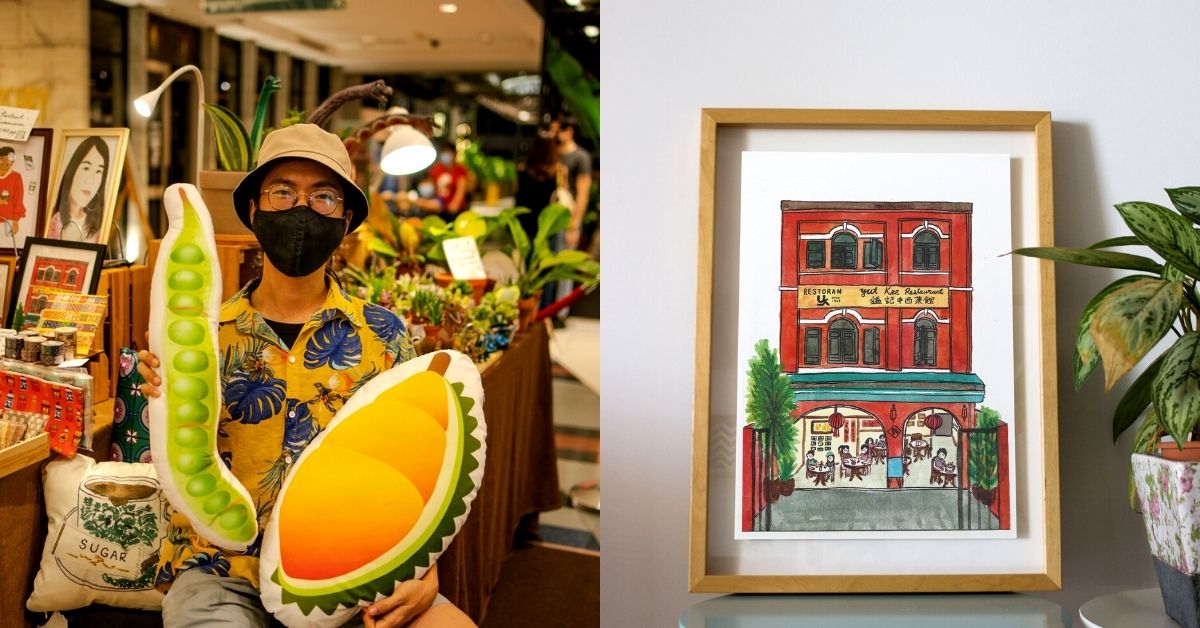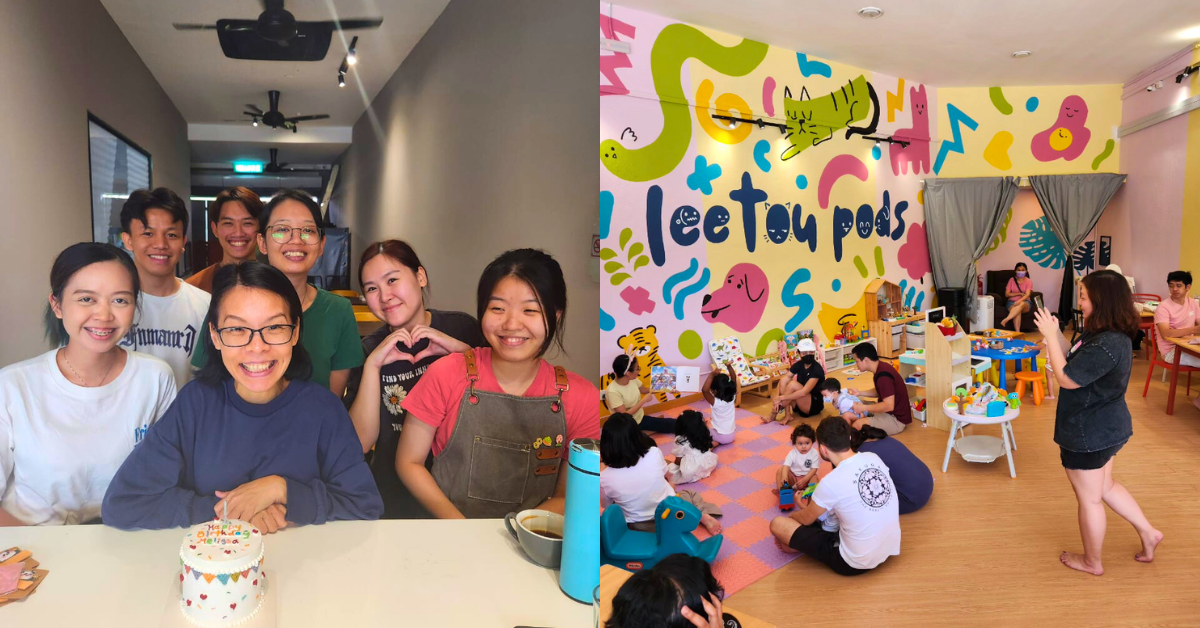With bubble tea, yoghurt drinks, and Starbucks galore, it’s not common to find Malaysian youngsters who genuinely enjoy basking in traditional kopitiams as older Malaysians do.
After being tasked with making a documentary on Malaysian culture, this coffee-loving millennial set out to learn more about the differences between modern kopitiams like Papparich and more traditional mom-and-pop ones.
As he dived deeper into the local kopitiam scene, Jack Yin of Jacktus found himself falling in love with traditional kopitiams more, as their “teh and kopi just hits different”. Wanting to share this love with others, he translated his passion into all kinds of art.
Kopi on pillows, stickers, and iron-ons
If you frequent local bazaars, you may have come across Jack’s work. From the food to storefronts, he prints his artwork on canvas, iron-ons, stickers, pillows, tote bags, and postcards. The prices of his art can range from RM4 to RM200.

Jack also later took a liking to traditional ointments like Tiger Balm and Yu Yee Oil which were quite dear to him as he has regular bloated stomach issues. The ointment art can be found in his iron-ons, with wordplay in their branding.
“The wordplay twist is actually to avoid any potential lawsuit and to inject part of myself into my creation,” Jack shared with Vulcan Post.

An art style people now recognise
When Jack started as an artist, he struggled with branding and packaging which resulted in some stores rejecting his items as consignments. “I believe it was because I didn’t manage to package all my items as the ‘Jacktus Malaysian Art’ series,” he reflected.
In the beginning, he found it difficult to look for funds to make new products and expand his artwork series, so he had to pay more for smaller-scale production. But today, he’s built his brand to the point where people now recognise his art.
Jack is a full-time artist, and his main income pre-MCO mostly came from consignments, bazaars, and art/comic events. Before the pandemic, it was relatively easy for him to earn RM3K from three-day bazaars despite them not happening often, and around RM500 to RM1K for smaller events.
“It was both easy and difficult to find a market—smaller comic cons were more frequent while shopping mall bazaars were less frequent (used to be monthly compared to weekly these days). Twice or sometimes thrice per month markets were the standard,” he explained.
His best selling artworks had always been the kopi and food ones, but he shared that recently his Peranakan series had been getting some traction as well.

MCO hasn’t been kind to even microbrands
“I would be lying if I told you that I can sustain myself independently now. I stay with my family and that cuts a lot of personal expenses and saves me a lot of time,” he opened up to us.
“Finance-wise I rely a lot on my online sales through Shopee and government grants like CENDANA.” Sales-wise, there’s been a 40% drop, but Jack does try to stay relevant virtually by posting his art every now and then on social media.
He also has a succulent business on the side with sales that are always better in markets and festive seasons because people prefer seeing them physically first before buying. But because of the MCO, he now earns from selling gardening tools on Shopee which helps keep him afloat a little.

“I do want to note that ever since the pandemic happened, shopping malls have been rather harsh to small businesses,” Jack shared his frustration.
In his experience, rentals in bazaars used to be from Friday to Sunday only and would cost around RM200 to RM280 per day. At the time, business was really good for him and he could cover the fees.
However, because of the pandemic, a lot of retailers in malls had to close down, and malls had to collect rent through bazaars. The rental period got more inflexible, as vendors can only rent spaces for a week and sometimes up to a month for RM250 to RM280 per day, Jack disclosed.
“Imagine trying to cover a rental of RM1,800 selling only artworks and plants! It’s really depressing because you could find many rare trinkets created by a wide range of small businesses in bazaars pre-MCO, but now you’d find most of the markets filled with luxurious fashion, essential oil, and jewellery brands that are highly sought after by the T20s,” he lamented the gradual disappearance of unique local microbrands.

Finding a safety net
With his extensive experience, Jack advises any aspiring artists to not go down the same route he did. Instead, they should get a full-time or even a part-time job, especially at times like these because of how hard it is to sustain themselves during the pandemic.
“If you decide to push on, IG and TikTok would be your best friends but don’t expect to make sales immediately. It takes time to find your audience and customers,” he advised.
Jack personally finds updating his social media almost like a chore, because not being able to sell his artwork as often is demotivating.
“At the same, production means spending tons of money and I am not sure if that’s a wise choice to make now. I also see this as a time for me to think of and sketch new products and content so that when the time comes, I can release all of them at the same time,” Jack shared.
Featured Image Credit: Jack Yin, artist behind Jacktus









